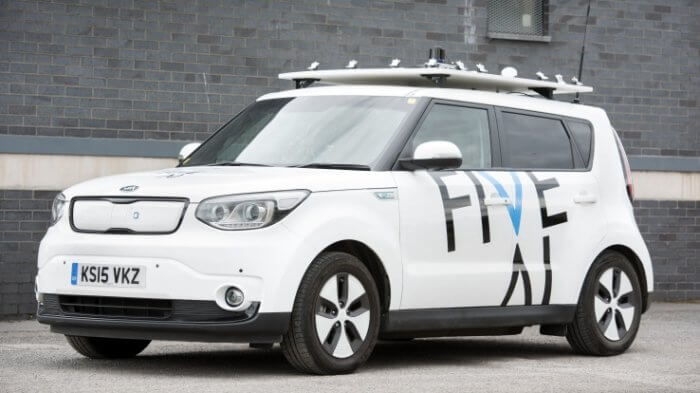Research director at the Alan Turing Institute
View Author Profile
Opinions
Leading The AI Industrial Revolution
The UK has all the tools to be a world leader in the development of AI innovations.

The so called ‘fourth’ Industrial Revolution, this time powered by breakthroughs in Artificial Intelligence (AI), will bring about profound changes and, if harnessed appropriately, will deliver great societal and economic benefits.
If we act now to mobilise our academic and entrepreneurial talent to build companies with ambition, then the UK is in a prime position to play a leading role in this revolution.
Many of our universities are global leaders with research published in the most prestigious journals and at leading academic conferences. These institutions have always partnered with global companies to conduct research, but UK businesses also need special access to talent in data science.
That is why the Alan Turing Institute was founded in 2015, to provide businesses with access to the world-class academic talent we have in the fields of data science and artificial intelligence here in the UK.
Excelling in data science is critical to the success of our companies, and by extension, the UK economy as a whole. AI is key to our ability to compete globally in industries key to today’s economy - financial asset management, trading, risk management, fraud prevention, medical diagnosis and drug creation, to name but a few.
We’ve already built many interesting AI companies here in the UK. Perhaps most famously, DeepMind Technologies was a spinout from UCL which went on to be acquired by Google in 2014.
In addition to its headline-grabbing game-playing advances, DeepMind has been producing cutting-edge research in the fields of reinforcement learning and applying that to practical projects like energy saving and medical diagnosis.
Similarly, Cambridge-based Evi was acquired in 2012 and is now a key part of Amazon’s intelligent personal assistant, Alexa. Apple acquired another Cambridge-based AI company, VocalIQ, in 2015 to enhance its own intelligent personal assistant, Siri. And London-based AI players Swiftkey and Magic Pony were acquired in 2016, by Microsoft and Twitter respectively.
We can see that the UK is great at capturing talent in relatively small companies which become acquisition targets for global players. On the other hand, we’ve been much less effective at actually creating the large, global, independent AI companies that the UK economy needs and that our talent deserves.

British innovations are often snapped up by global players
That’s partly because building these companies is hard, both technically and commercially. It takes experienced management to navigate the arduous journey from scientific research to technology development, and through a process of industrialisation, to scaling the business globally.
The deep technical expertise that we have in our universities and research institutions here in the UK must be coupled with the best engineering leadership, and understanding of the market, with large scale test and validation know-how, as well as fundraising and business management nous.
And perhaps most importantly of all, British companies need the ambition and self-belief that they can go all the way.
One of the greatest challenges in AI at the moment is the development of autonomous vehicles. The goal for companies here is to build a system with the technology to enable SAE “Level 5” autonomy – fully autonomous – personal mobility services.
There are many practical and methodological challenges in realising Level 5 autonomy as not only must this highly complex technology be built, but it must also be tested and validated to ensure that its performance is safe, as well as developing insurance and service models in tandem.
One such company that is embracing this challenge in the UK is FiveAI, a start-up that is building deeply complex technology to take to market, in the form of a service to consumers which is aimed at getting commuters to give up their cars.

FiveAI wants autonomous vehicles on the streets in two years
It’s a hugely ambitious project, but FiveAI plans to have autonomous vehicles on the streets of London by 2019.
These AI-based challenges each constitute multi-faceted problems and it is hard for one single research group to lead in all of the components required for an autonomous driving solution. Companies like FiveAI are independent from any single research group and that is a crucial component of the company’s ability to succeed.
That allows a judicious combination of partnering, by employing researchers and technologists from different research ‘religions’ which is key to delivering safe, robust technologies and services.
In particular for the UK, solving the autonomous driving challenge will deliver an important prize for society: recovering commuting time for users, reducing commuting costs, cutting accident rates, reducing congestion and cutting vehicle emissions.
When autonomous vehicles can safely deliver end-to-end journeys anywhere, with zero occupancy where necessary, there will be a dramatic shift from car-ownership to consumption of mobility as a service (MaaS).
We have the skills and the technology in the UK to develop a world-leading autonomous MaaS provider. Now is the time to create build on those elements to develop a world-leading UK success story which can compete and market itself at a global level.
Professor Andrew Blake, scientific advisor at FiveAI, research director at the Alan Turing Institute.
Most read in Opinions
Trending articles on Opinions
Top articles on Minutehack
Thanks for signing up to Minutehack alerts.
Brilliant editorials heading your way soon.
Okay, Thanks!

